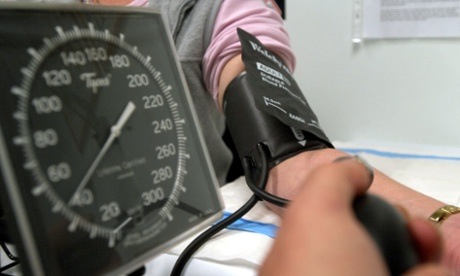
The Australian government remains committed to reducing doctors’ rebates for non-concession card holders as consultations on Medicare continue.
Health minister Sussan Ley met community and consumer groups to discuss proposed changes to healthcare payments at their request in Canberra on Tuesday.
The minister had announced a wide-ranging consultation process to discuss future changes to Medicare, after two previous attempts at reform failed.
Ley announced that the government would scrap its plan to cut rebates for GP consultations that last less than 10 minutes after outcry from doctors’ groups. Legislation to impose a flat $7 copayment for all visits to the GP has stalled in the Senate, with little crossbench support.
Ley has vowed to press on with a plan to cut rebates by $5 for non-concessional patients, which could cause an increase in the costs of visiting the GP.
“This government is also committed to maintaining high-quality care and treatment and protecting bulk-billing for concession card holders and the vulnerable and this was high on the agenda [for Wednesday’s meeting],” Ley said.
She said changes were needed to protect future funding arrangements for healthcare.
“With over 70% of Medicare-eligible medical services provided to non-concessional patients now being bulk-billed, doing nothing is not an option.”
The community and health groups, which include the Australian Council of Social Services (Acoss), the National Aboriginal Community Controlled Health Organisation (Naccho), the Public Health Association and the National Rural Health Alliance, were collectively opposed to introducing a copayment.
“We haven’t changed our perspective on that. Medicare is a universal healthcare system. We want it to stay that way,” chief executive of the Public Health Association, Michael Moore said.
Moore indicated that the community groups would be willing to negotiate on reform, as long as it did not include a mandatory copayment.
“Our judgement is that the minister is still very keen to have some sort of price signal. It’s an area where we disagree, but areas that we are also happy to work on.”
Cassandra Goldie, head of Acoss, said “it does seem like the minister is still looking” for a way to keep the copayment on the table.
She said a “significant amount of time” had been spent discussing the option of a price signal in Tuesday’s meeting with Ley.
Goldie welcomed the consultation process and said any further reforms should not be made “behind closed doors”.
“If the minister comes to a view on what her position will be in terms of moving away from a copayment or what the alternative is, we all want to see it,” she said.
“It should be made public and we should all have confidence that we are not privileging any particular voices in this debate.”
Moore said relations have thawed with doctors and consumer health groups, following a frosty reception to the 2014 budget.
“The discussions that went on between the government and Australian Medical Association a number of months ago – we’ve moved on since then. Different minister, different discussions,” he said.
Further meetings between the community and consumer groups and Ley have yet to be scheduled, but the organisations said they anticipate more are on the cards.
